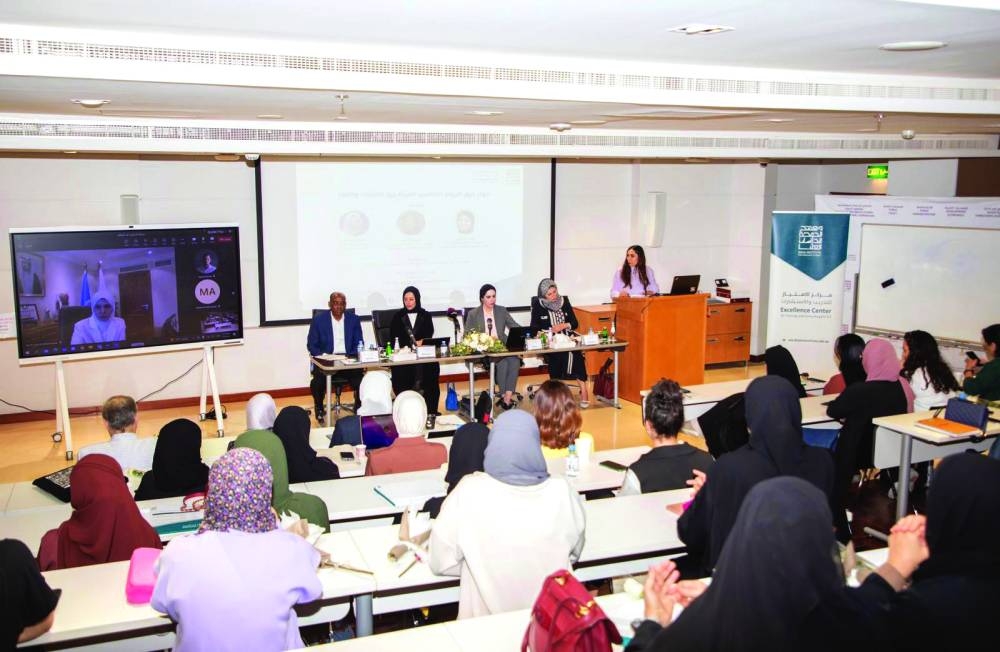The Excellence Center for Training and Consulting at the Doha Institute for Graduate Studies (DI) organised yesterday a session titled Dialogue on International Women's Day between Celebration and Criticism.
Media personality Khadija Bengana, Dr Hind al-Muftah (Permanent Representative of Qatar to the European Headquarters of the United Nations in Geneva), and Dr Maryam al-Khater (professor of Digital Media and Politics, and Advisor to the Office of the President of Qatar University) were the panellists. Dr Aya Randall (assistant professor in Human Rights Programme, DI) was the moderator.
Bengana shed light on prominent historical examples of women in general and Arab women in particular, referring to the role of Arab women in the national struggle, and the battles and struggles they waged in order to obtain their rights. She wondered whether the reality of women has changed or not, pointing out that “there are positive changes in varying proportions from one society to another.”
Dr al-Khater emphasised that “reducing women's right to one day is a marginalisation of their active role in building societies and contributing to their development and sophistication.” Explaining that celebrating women on this day may be formal in many cases, she said there are “fundamental issues that must be discussed seriously, away from these formal celebrations that do not address women's issues from their roots.”
In a related context, Dr al-Muftah indicated, during her online video presentation from Geneva, stated that “the celebration of International Women's Day faces a lot of criticism as it is imported from Western culture and a product of the Western feminist movement. She said that the issue of women's rights is characterised by a contentious and controversial nature and what is considered a right of Western women may be the opposite in Arab societies.”
Dr Hamed Ali, dean of the College of Economics, Administration and Public Policy, opened the session and stressed that “women have become an active force in society. They have a significant and noticeable impact on public life, and that most of the countries in the region have begun to legislate policies intended to empower women.”

View of the dialogue session

